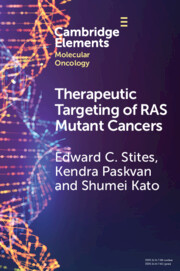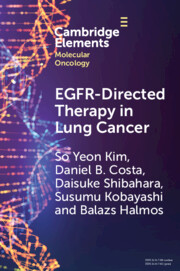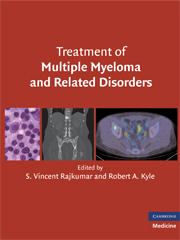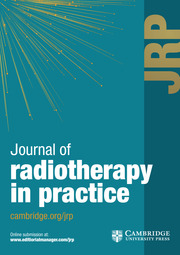Therapeutic Targeting of RAS Mutant Cancers
The KRAS oncogene is believed to be the most common single nucleotide variant oncogene in human cancer. Historically, efforts to target KRAS and the other RAS GTPases have struggled. More recently, efforts have focused on identifying and exploiting features unique to specific oncogenic mutations. This has led to the first FDA approval for a RAS targeted therapy. This new agent is a covalent inhibitor that reacts with the cysteine residue created by a codon 12 glycine to cysteine (G12C) mutation within KRAS. Mutant-specific strategies may also exist for other KRAS single nucleotide variants, and recent studies provide examples and mechanisms.
Product details
September 2022Adobe eBook Reader
9781009075251
0 pages
This ISBN is for an eBook version which is distributed on our behalf by a third party.
Table of Contents
- Introduction
- RAS Biology
- Oncogenic RAS
- RAS Targeting
- Downstream Targeting
- Upstream Targeting
- Targeting Specific RAS Mutants
- KRAS G12C Targeting
- Direct Targeting of Other RAS Proteins
- KRAS G12R Pancreatic Cancer
- KRAS G13D Colorectal Cancer
- Summary
- References.






